7. Funny Games (1997)
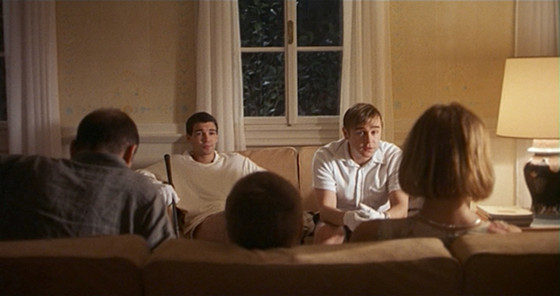
No modern director is as good at messing with his audience as Austrian provocateur Michael Haneke. Early on in his 30-year career, he released “Funny Games,” a relentless test of audiences’ boundaries.
The plot is simple: a wealthy Austrian family, George (Ulruch Mühe), Anna (Susanne Lothar), Georgie (Stefan Clapczynski), and their dog Rolfi visit their lakeside vacation home. Their neighbor Fred introduces them to Peter (Frank Giering) and Paul (Arno Frisch), two men from Vienna. Though pleasant at first, the men start force themselves into the family’s lives and, eventually, into the audience’s. It was nominated for Cannes coveted Palme d’Or in 1997.
Haneke abhors what he calls “barrel-down” American cinema, which he says takes power away from the viewer. So, through a healthy dose of fourth wall breaking and direct addresses, Peter and Paul take cues from Richard III and let audiences in on their plans, or “games” as they call them.
Over an exhausting 110 minutes, the two men test viewer patience and the boundaries of cinema as they see how much abuse the family can take. Set in the family’s lakeside home, “Funny Games” is no easy watch, no matter what the title implies.
8. Big Bad Wolves
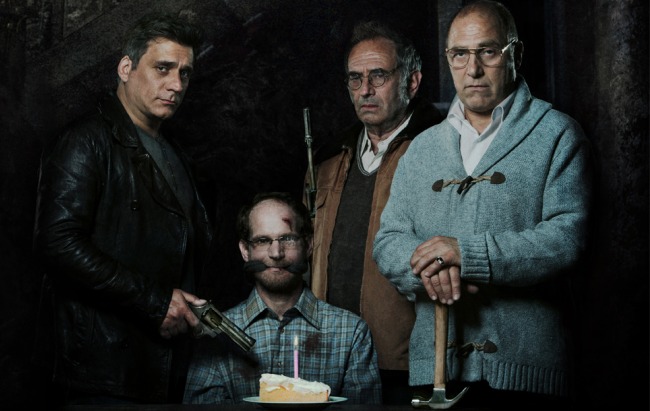
The second Israeli movie on our list, “Big Bad Wolves,” also happens to be one of the darkest comedies in recent memory. On the surface, it doesn’t sound funny at all. One day, three girls are playing hide-and-seek. The daughter of Gidi (Tzahi Grad), a tough-as-nails ex-miliary man goes missing. On the case is Micki (Lior Ashkenazi), but he’s quickly fired from the police course.
Micki decides to kidnap the prime suspect Dror (Rotem Keinan), only to be kidnapped himself along with his victim by Gidi. The two lock Dror in Gidi’s basement and try to extract a confession. The movie’s humor has to be experienced first-hand. It’s dry, always unexpected, and dark as can be.
9. Fermat’s Room
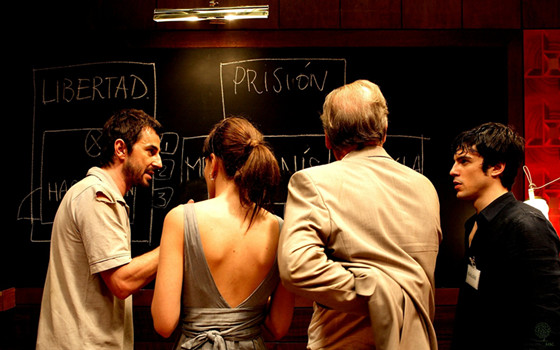
You can talk about a plot being like a puzzle. Pieces are picked up along the way, and by the end, hopefully they fit together nicely. The Spanish thriller “Fermat’s Room” is exactly like that, but solving the puzzle is the key to survival. Under the guise of helping to solve a grand mystery, a person called “Fermat” invites Spain’s best mathematicians to his home.
Once the four of them arrive, all using the aliases of other influential mathematicians: Galois (Alejo Sauras), Oliva (Elena Ballesteros), Hilbert (Lluís Homar), and Pascal (Santi Millán). Once inside, the walls start closing in on them, and Fermat gives them a series of puzzles they need to solve in order to escape.
It’s an interesting note that “Fermat’s Room” is the only movie on our list that starts literally starts bigger than it ends. The writing takes ingenious turns and the performances are riveting. If you watch any movies with friends, “Fermat’s Room” is the one to choose. It gets heavy, but it’s a good, fiercely intense trip well worth its running time.
10. Wait Until Dark
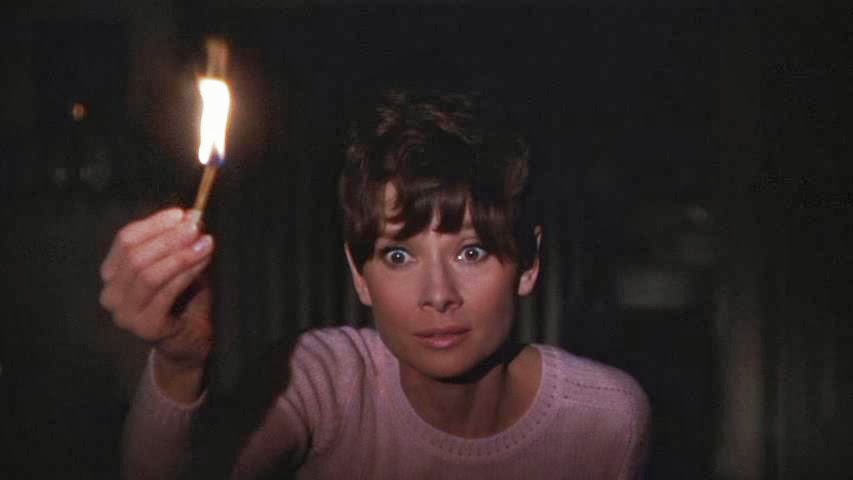
This wouldn’t be a proper list without the 1967 shocker “Wait Until Dark.” The premise is simple: a doll full of drugs is hidden somewhere in Susy’s (Audrey Hepburn) apartment. Susy is blind. Some con artists, Talmna (Richard Crenna), Carlino (Jack Weston), and Harry (Alan Arkin) work their way into her place and camp out, hoping that Susy will lead them to the stash.
Even today, “Wait Until Dark” is an economical thriller with one of the best jump scares in horror. Adapted from the titular play, “Wait Until Dark” uses shadows to full effect, trying to make the audience as blind as Susy without turning the lights off. At every turn, they pull it off.
11. 7 Años

Quietly released by Netflix late last year, “7 Años” is the streaming service’s first original movie in Spanish. It’s a compact thriller, clocking in at just over an hour, but manages to pack an efficient punch in that time. Four founders of a successful company find out their under investigation for tax fraud by the Spanish IRS.
All of them are complicit, only one of them has to serve the seven years that their crimes entail. So, Marcel (Alex Brendemühl), Vero (Juana Acosta), Carlos (Juan Pablo Raba), and Luis (Paco León) hire a mediator, José Veiga (Manuel Morón), to figure out who’s going to take the fall.
What sets “7 Años” apart is its frankness. It takes maybe three minutes for the characters and investigation to fall into place. The writing is tight enough, the performances deft enough, to make each relationship clear, and bringing José in to wrangle the neuroses only deepens those connections. It’s a quick pulse pounder with assured direction and a fierce sense of momentum. Just like its central cast, “7 Años” moves forward no matter what.
12. Repulsion
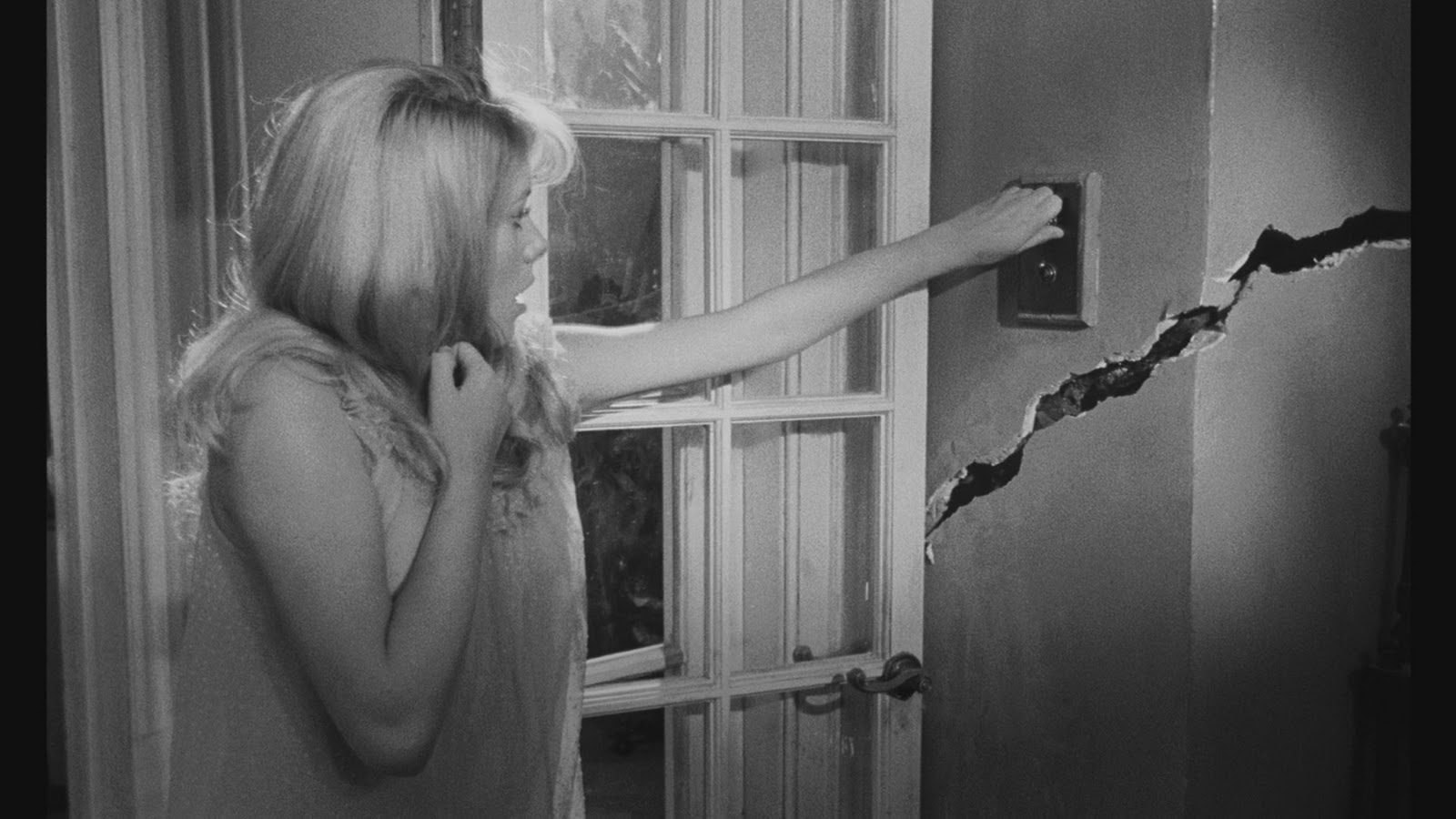
Isolation has been a favorite topic of horror since it began. Few protagonists have been as isolated as Carol Ledoux (Catherine Deneuve), the damaged subject of Roman Polanski’s “Repulsion.” Carol lies with her sister Helen (Yvonne Furneaux) and her lover Michael (Ian Hendry). The movie begins with Carol rebuffing a possible suitor, Colin (John Fraser), just before her sister leaves for vacation.
Once Carol’s alone, she begins to hallucinate. But when Colin comes back into the picture, it becomes even harder to separate fact from fiction. The deeper her psychosis goes, the more the world itself turns on her. Dark figures break into her apartment, and hands even grow from the walls. As his first English-language film, Polanski broke out in America, producing a bonafide classic of the psychological horror genre.
13. Pontypool
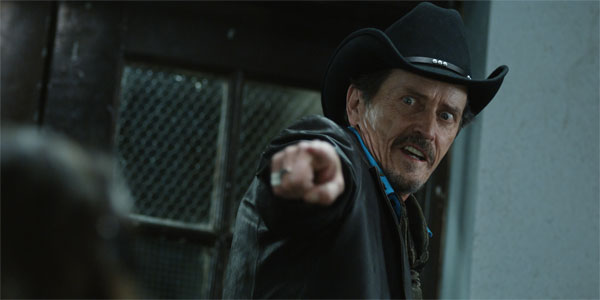
It’s guaranteed that “Pontypool” is unlike any other movie on this list. It’s set in a small Ontario radio station in the dead of winter. On his way to work, Grant Mazzy (Stephen McHattie) has a seriously weird encounter that sets the stage for the rest of the night. At the station, he works with technical assistant Laurel-Ann Drummond (Georgina Reilly) and station manager Sydney Briar (Lisa Houle).
The broadcast proceeds normally for a while, until their newscaster, Ken (Rick Roberts) reports riots, getting caught up in the chaos himself. Just as Ken holes up in a grain silo to escape, the broadcast is interrupted by a mysterious recorded message in French. Laurel-Ann translates it, and it doesn’t make much sense: stay indoors, don’t use terms of endearment, baby talk, or the English language itself.
From there, “Pontypool” evolves into a whipsmart zombie movie with a fascinating conceit. The brilliance of the movie, despite some hammy moments, is how well it builds to revealing that conceit. It takes its time, builds its characters, and lets its scenes breathe, giving each revelation more weight than your average apocalypse flick.